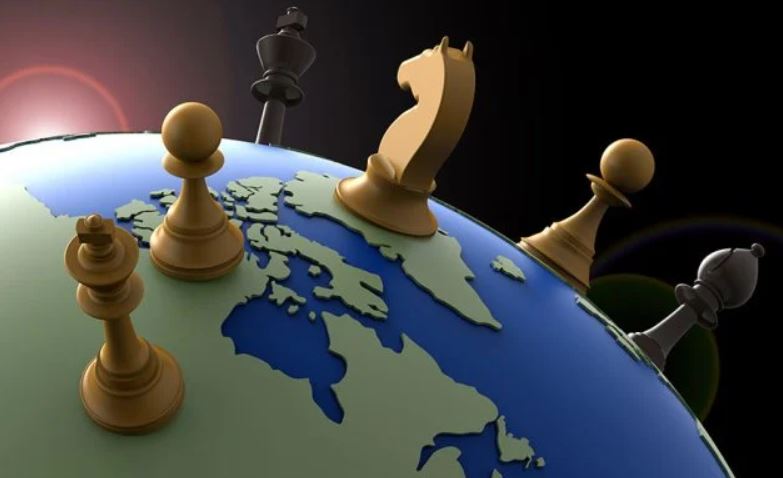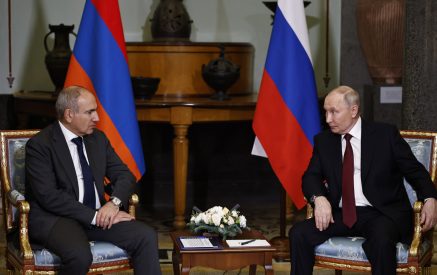What is dangerous about “geopolitical” thinking?
I must admit that about 30 years ago I first heard the word “geopolitics,” and from that time, I began to dislike that word, the worldview hidden under it, and the philosophy. In that perception, it seems to me, is a late fashion of the late 19th century, a kind of so-called “Social Darwinism,” which leads to the processes taking place in the world, the struggle for the existence of states, where the strongest wins. Thus, it turns out that the meaning of the existence of any state is the purely physical expansion of its borders. It seems that after the two catastrophic wars of the 20th century, it should have become clear that this mindset is, to put it mildly, ineffective, but now thousands of people, from Facebook politicians to state figures, are “suffering from geopolitics,” thinking that we are probably still living in the “imperialist” era.
I recently re-read an extensive interview with Zbigniew Brzeziński and Brent Scowcroft, one of the most influential figures in US politics, conducted in 2008 by American journalist David Ignatius, summarized in the book “America and The World.” The main idea of these figures, or, if you like, regret, is that their country made so much effort to destroy the Soviet Union, but instead received a “pin hole” instead of a “centralized” threat, as they call it. Note that this is not said by left-wing, anarchist-oriented intellectuals like Noam Chomsky, but by people who have long been, so to speak, “shaped” US foreign policy.
The main problem for the United States, of course, is not modern Russia, which before the Russian-Ukrainian war produced 1.8 percent of world GDP (it is clear that this number will now decrease), but China. The latter is not traditionally guided by “geopolitical” logic (“new war – new territories”), and does not try, for example, to “conquer” the Far East from Russia. But if Russia, the United States, or any other country wants money from China to “make sense” of this or that large-scale production, Beijing will probably not refuse, but will make a condition that “we will do it with our technology and our labor force.” It is far from the political application of Darwin’s biological theory, but it is perfectly in line with the patterns of the modern world, and vice versa, what Russia is doing now is, in essence, an attempt to stop time.
Read also
There is a well-founded fear in Russian President Vladimir Putin that it will be too late tomorrow. In other words, if he had not started a “geopolitical war” in February of this year, it is very possible that the part of Russians who do not live by the values of “expansion” would have become a critical mass and would not believe in the tales of “denationalization” or “demilitarization.”
Today it is very difficult to cut people off from the real world, to feed them with TV lies from morning till night, tomorrow it will be impossible at all. So what Putin fears will happen, people (not only in Russia) will understand that “becoming a burden” and “geopolitical aspirations” have nothing to do with national dignity or patriotism. “Geopolitical thinking” leads to more tragic consequences for small states.
I mean Armenia and Azerbaijan. Yes, including Azerbaijan. Maybe the people of that country are “celebrating victory” now, they are happy that they “restored territorial integrity,” but in reality they did not gain much from that “victory,” and lost the lives of thousands of young people. The problems that Azerbaijan, personally Ilham Aliyev, will face are still ahead. In fact, I think that the leaders of both Armenia and Azerbaijan have shown short-sightedness and irresponsibility, allowing this last war, thus involving the two countries in “geopolitical games.” The recent statements of the Prime Minister of Armenia are, of course, cynical, in fact, he says that the problem could have been solved without victims, but Pashinyan himself preferred to solve it with victims, so that people would not say “Nikol is a traitor.”
But it is purely moral. And in the political sense, it was wrong to state today that Armenia agreed to abandon the “benchmark” of Artsakh’s independence, not because it is a “betrayal,” “handing over Artsakh,” etc., but because it pushes our country into the “West-Russia” geopolitical dispute. (Details about it in Stepan Danielyan’s post). In other words, it is a path that leads to a new war, not to an “era of peace.”
Aram Abrahamyan























































